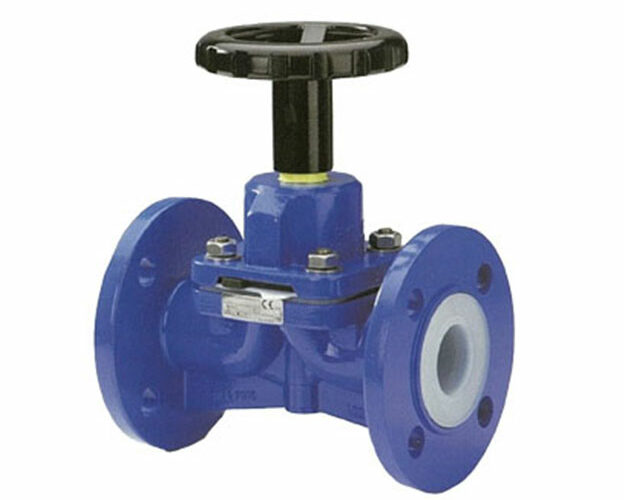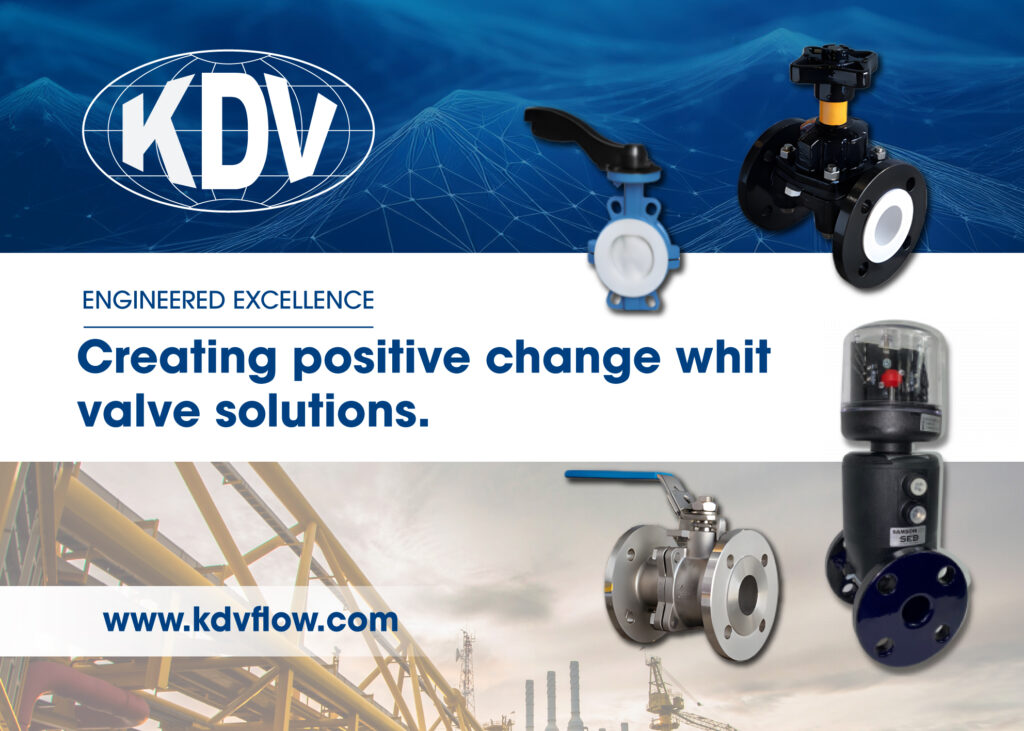Diaphragm Valves
Diaphragm valves are important in industries like pharmaceuticals, food processing, and chemicals. They feature a flexible diaphragm, usually made from rubber or elastomer, to control the flow of liquids, gases, and slurries. This design minimizes contact between the valve and ... Read More
-
Manufacturers
-
Industries
-
Actuation Method
-
Body Material
-
Design Standards
-
Media
-
Applications
-
ANSI / ASME Ratings
-
Country
-
 Carbon SteelHazardous FluidsSlurry
Carbon SteelHazardous FluidsSlurryDiaphragm Valve (Weir)

-
 Carbon SteelThermal oilProcess Industry Applications
Carbon SteelThermal oilProcess Industry ApplicationsDiaphragm Valve PN16 – Class 150

-
 Cast IronAcidsCorrosive Environments
Cast IronAcidsCorrosive EnvironmentsKDV Glass Lined – Straight Through Type

-
 Cast IronCorrosive EnvironmentsChemicals
Cast IronCorrosive EnvironmentsChemicalsKDV Halar Coated – Straight Through type

-
 Cast IronAcidsCorrosive Environments
Cast IronAcidsCorrosive EnvironmentsKDV Plastic Lined – Straight Through Type

-
 Carbon SteelChemicalsCorrosive Fluids
Carbon SteelChemicalsCorrosive FluidsPFA Lined Diaphragm Valves

-
 Ductile Iron (Cast SG Iron)
Ductile Iron (Cast SG Iron)SAUNDERS® ETFE Lined Valves

-
-
 Cast Iron
Cast IronSAUNDERS® Glass Lined Valves

-
 Cast Iron
Cast IronSAUNDERS® PFA Lined Valves

-
 Polypropylene
PolypropyleneSAUNDERS® PP Lined Valves

Category Description
Diaphragm valves are important in industries like pharmaceuticals, food processing, and chemicals. They feature a flexible diaphragm, usually made from rubber or elastomer, to control the flow of liquids, gases, and slurries. This design minimizes contact between the valve and the fluid, which reduces contamination risks, especially in sensitive applications.
These valves can handle both on-off and throttling functions, offering versatility across different processes. Manual models provide simple control, while automated valves, equipped with actuators, allow for more advanced remote control. Made from materials like stainless steel and high-performance plastics, diaphragm valves are built to withstand various fluid types and pressures.
The primary advantage of these valves is their simple design. Since the diaphragm doesn’t come into direct contact with the fluid, wear and tear are significantly reduced, leading to lower maintenance costs and extended valve life. Additionally, diaphragm valves are resistant to corrosion, making them suitable for aggressive fluids.
Although diaphragm valves require less maintenance, routine inspections should check for diaphragm wear and ensure the valve body remains in good condition. Proper care will ensure that these valves perform efficiently in demanding applications.

















